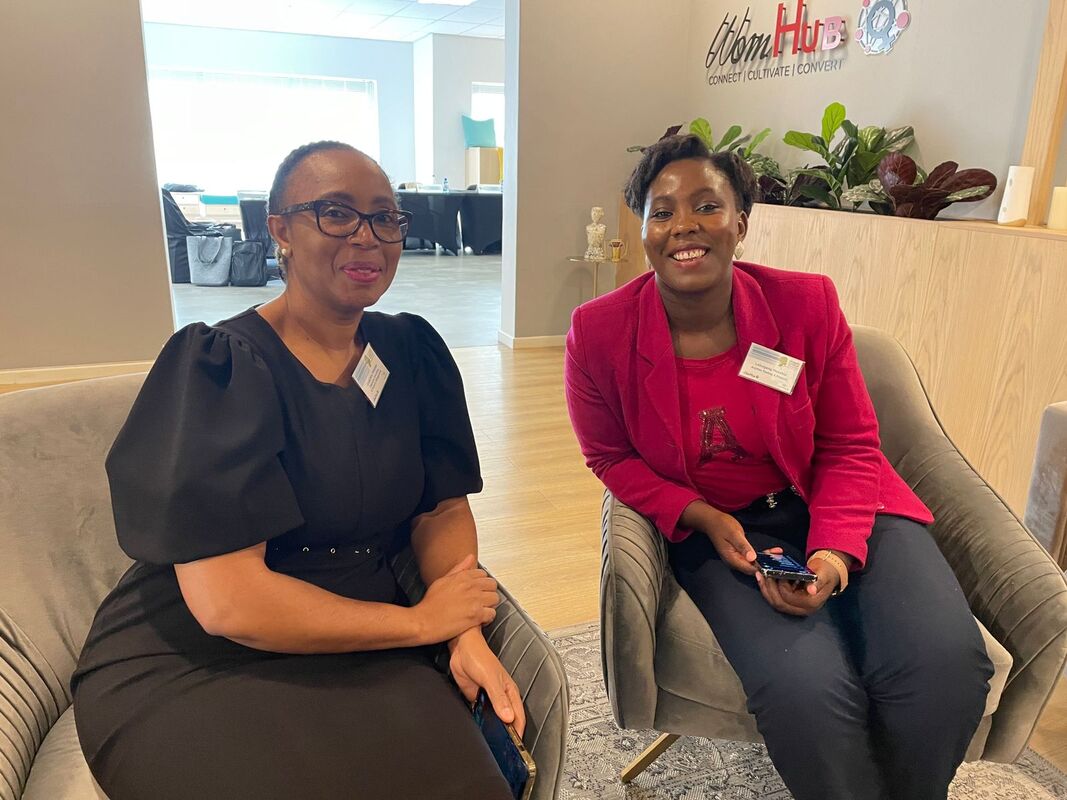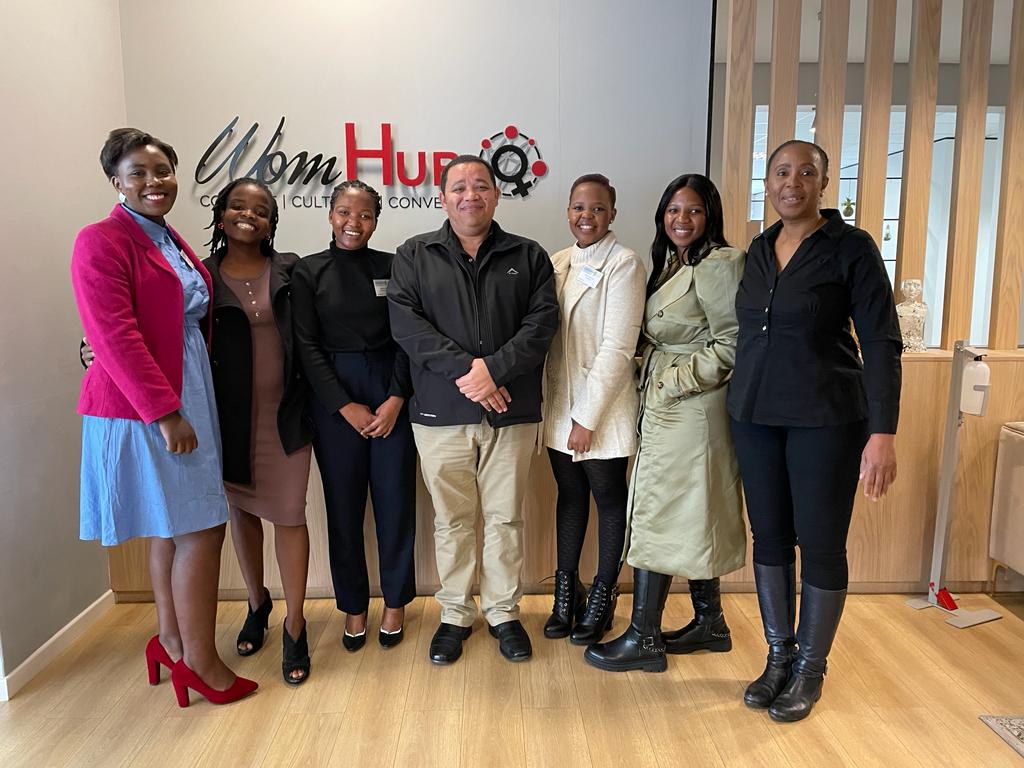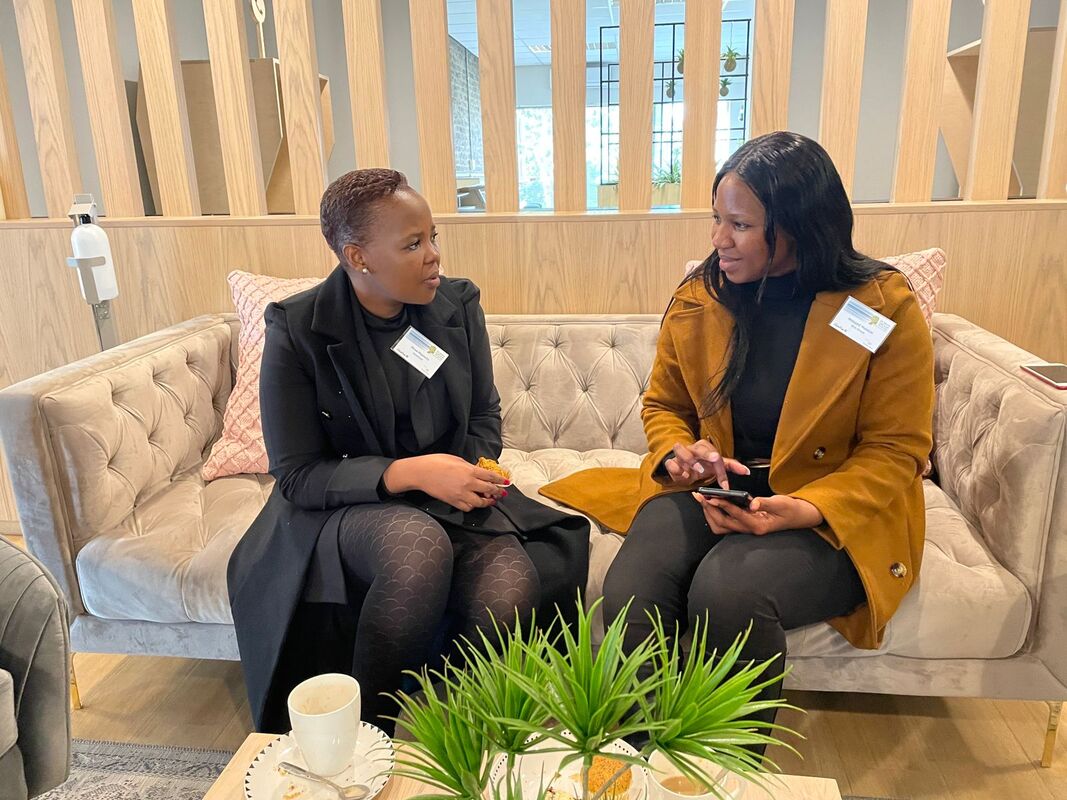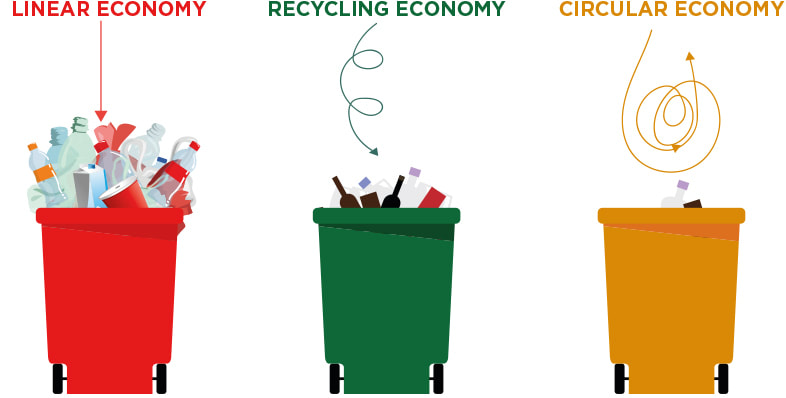|
The De Beers Group Trailblazer Accelerator cohort recently had an eagerly awaited in-person session at our Johannesburg Hub. This programme is designed to fast-track women-led businesses that make a sustainable positive impact in society and the environment. We are dedicated to supporting ventures that contribute to a greener and more inclusive future.
The gathering was extraordinary, with our cohort gearing up to achieve significant milestones on their entrepreneurial journey. The in-person session at our Johannesburg hub has further ignited their passion and served as a source of inspiration as they strive to reach new heights of success. We recently had the honor of sitting down with Shahila Perumalpillai, head of Equity & Inclusion at De Beers Group, on the momentous occasion of the official launch of the De Beers Group Trailblazer Accelerator programme, powered by WomHub. This groundbreaking initiative aims to support women-led tech businesses with a focus on sustainability in South Africa, Namibia, and Botswana. In this exclusive interview, we delve deep into the visionary framework of De Beers Group's “Building Forever” and how it aligns with the goals of the De Beers Group Trailblazer programme. We explore the inspiration behind the partnership between De Beers Group and WomHub, their shared ambition to create a sustainable future, and the unique challenges faced by women entrepreneurs in the technology sector. Read our captivating interview to gain valuable insights into the dynamic partnership between De Beers Group and WomHub, as we join forces to empower women entrepreneurs in the ever-evolving tech space. Explore how our collaboration is fostering innovation, growth, and success for these trailblazing women. Interview: Q: Can you tell us more about De Beers Group's 'Building Forever' framework and its alignment with the De Beers Group Trailblazer? A: Building Forever is our commitment to creating a positive and enduring impact on the world. It comprises 12 goals focused on protecting the natural world, partnering for thriving communities, leading ethical practices, and accelerating equal opportunity. The De Beers Group Trailblazer aims to accelerate opportunities for female founders in sustainability, aligned with these goals. Q: What inspired the partnership between De Beers Group and WomHub for the De Beers Group Trailblazer? A: The partnership stems from a shared ambition to create a sustainable future and ensure girls and women have access to equal opportunities. The De Beers Group Trailblazer expands our partnership to empower women-led tech businesses with a sustainable environment focus. Q: What criteria are used to select participants for the De Beers Group Trailblazer? A: We aim to select participants who can benefit from the programme's offerings. Criteria include identifying as women, being from De Beers producer countries in southern Africa, and having a focus on sustainability. We value diversity in thought and entrepreneurship to tackle the challenges ahead. Q: How does the De Beers Group Trailblazer support and empower women entrepreneurs in STEM fields? A: STEM is crucial for creating a sustainable future. The De Beers Group Trailblazer supports women in developing the technology and solutions needed. We provide a platform for women to demonstrate leadership in the sector and increase diversity in STEM. Q: How does the De Beers Group Trailblazer contribute to ethical practices, thriving communities, protecting the natural world, and equal opportunity? A: The De Beers Group Trailblazer contributes to our goal of supporting 10,000 women entrepreneurs and helps address sustainability challenges. It aims to foster businesses that support De Beers, colleagues, and communities in achieving sustainability goals. We strive for a diverse pipeline of talent for the green sector. Q: What impact do you hope to have on women-led tech businesses and the communities they serve through the Trailblazer programme? A: The De Beers Group Trailblazer aims to have a significant impact on the businesses and entrepreneurs involved, providing them with support and resilience. As these businesses grow, they can have a positive impact on communities, bringing jobs and opportunities. Q: What sets the De Beers Group Trailblazer apart from other opportunities for women in STEM? A: The De Beers Group Trailblazer has been built on 17 years of experience working with the engineering sector and entrepreneurs, especially those with impact businesses to develop skills and foster leadership, entrepreneurship and facilitate mentorship and networking. We aim to create a supportive environment and encourage women's leadership in the sector. Q: How does the programme address the unique challenges faced by women entrepreneurs in the technology sector? A: Women entrepreneurs face similar challenges in the technology sector, but the De Beers Group Trailblazer provides a platform for women to lead, support each other, and attract more women to the field. We strive for equity, inclusion, and a diversity of thought in sustainability and environmental impact. Q: What measures are in place to track the long-term impact and success of the De Beers Group Trailblazer? A: We embrace a learning approach and aim to share our findings with experts in the sector. This allows us to evaluate the challenge, effectiveness of the programme, and identify additional support required to deliver impact. Q: What are De Beers Group's aspirations for the future of the De Beers Group Trailblazer and women-led tech businesses in Southern Africa? A: Our vision for the De Beers Group Trailblazer is to stimulate discussion and collaboration, ensuring diversity in shaping and benefiting from the growing STEM sector focused on sustainability. We aim to accelerate representation, create role models, and provide a network for female founders. The De Beers Group Trailblazer Accelerator stands as a testament to the unwavering commitment of both WomHub and De Beers Group towards creating a sustainable and inclusive future. We are truly inspired by the exceptional cohort of trailblazing entrepreneurs as they prepare to embark on their transformative entrepreneurial journey. Together, we eagerly anticipate witnessing the tech space evolve into a greener, more inclusive space, where innovation and sustainability go hand in hand.
0 Comments
A circular economy startup is a company that operates within the framework of a circular economy model. The circular economy aims to minimize waste, maximize resource efficiency, and promote sustainable practices by keeping materials and products in use for as long as possible through strategies such as recycling, reusing, and repurposing.
Circular economy startups focus on developing innovative business models, products, and services that enable the transition from a traditional linear "take-make-dispose" model to a more circular and regenerative approach. These startups often leverage technology, data, and new economic models to create solutions that optimize resource utilization, reduce waste generation, and promote the reuse and recycling of materials. Some common characteristics and activities of circular economy startups include: Resource Efficiency: Startups in the circular economy aim to minimize resource consumption and waste generation by optimizing material flows, reducing energy use, and maximizing the value extracted from resources. Founder: Ntombekhaya Manyika Business: NTY Construction and Energy Innovation Links: Facebook WomHub Programme: Africa Innovation Fellowship 2022 Founder: Nonhlanhla Motanyane Business: Scorch Technology Links: LinkedIn WomHub Programme: Economic Growth Accelerator 2022 Founder: Amy Cunliffe Business: AR Cunliffe Links: LinkedIn WomHub Programme: Circular Economy Incubator 2021 Product Life Extension: These startups focus on extending the lifespan of products through repair, refurbishment, and remanufacturing. They often provide services to repair or upgrade products, enabling them to be used for longer periods and reducing the need for new purchases. Founder: Sharne Bloem Business: Team Mahali Links: LinkedIn WomHub Programme: Economic Growth Amplifier 2022 Founder: Mikateko Nkosi Business: House on Wheels Links: LinkedIn WomHub Programme: Circular Economy Incubator 2021 Founder: Granny Mmantho Lesiamang Business: Clauseph Enterprise Links: LinkedIn WomHub Programme: De Beers Accelerator 2023 Sharing and Collaborative Consumption: Startups in this space promote sharing and collaborative consumption models, such as peer-to-peer sharing platforms for goods and services. They enable individuals and businesses to access and utilize underutilized resources, reducing the demand for new production. Material Recycling and Upcycling: Circular economy startups develop innovative solutions for recycling and upcycling materials, turning waste into new raw materials or products with higher value. They may focus on recycling specific waste streams or developing technologies to extract valuable resources from waste. Founder: Chantelle Goliath Business: Milli Distribution Links: LinkedIn WomHub Programme: Economic Growth Amplifier 2022 Founder: Rheineth Modiselle Business: Bokamoso Recycling Links: LinkedIn WomHub Programme: Circular Economy Incubator 2021 Founder: Refilwe Lesufi Business: Prana Consulting Links: LinkedIn WomHub Programme: Africa Innovation Fellowship 2022 Sustainable Design and Manufacturing: These startups emphasize sustainable design principles, incorporating concepts like eco-friendly materials, modular design for easy disassembly and repair, and efficient manufacturing processes with minimal waste and energy consumption. Founder: Michel Lingham Business: Solar Power Café Links: LinkedIn WomHub Programme: Sasol Women in Engineering 2022 Founder: Prudence Tebogo Moela Business: Moela Building Solution Links: LinkedIn WomHub Programme: Circular Economy Incubator 2021 Founder: Onnica Toko Business: Macluminium Trading Biofuel Links: LinkedIn WomHub Programme: Circular Economy Incubator 2021 Founder: Mosa Mapheto Business: Greatfuel Links: LinkedIn WomHub Programme: De Beers Accelerator 2023 Digital Solutions and Platforms: Many circular economy startups leverage digital technologies and data to optimize material flows, enable transparency and traceability in supply chains, and facilitate the exchange and tracking of resources and products. Founder: Cathy Kayembe Business: SwopSwop Links: LinkedIn WomHub Programme: Circular Economy Incubator 2021 Founder: Ridhwana Shaik Business: Creatively Connected Consulting Links: LinkedIn WomHub Programme: Circular Economy Incubator 2021 Founder: Nana Myeza Business: Basadi Solutions Links: LinkedIn WomHub Programme: Circular Economy Incubator 2021 Overall, circular economy startups play a crucial role in driving innovation and disrupting traditional linear economic models. They contribute to a more sustainable and resource-efficient future by reimagining how we produce, consume, and manage materials and resources. Apply now to our WomHub Circular Economy Incubator and Accelerator! If you are thinking about how to incorporate more circular systems and improve the impact of your product, then the Incubator is the right space for you. Even if you are currently at market but wish to incorporate a more circular lens or are thinking about your early stage innovation and are about to launch, then apply to Incubator where we can support you ideating through your circular product to prepare for testing and launch. If you are already part of the circular economy with a product at or launching in market, our Circular Economy Accelerator is the right fit for you in order to refine, scale and grow your current business. Acceleration focuses on supporting already existing startups and business refine products and processes in order to reach their full potential. The mining value chain represents a transformative journey from resource extraction to sustainable practices. These stages collectively form the mining value chain, encompassing the entire lifecycle of mining operations, from extraction to market delivery. Effective management and optimization of each stage are crucial for ensuring the smooth flow of materials, maximizing resource utilization, and meeting market demand efficiently. Within these value chains, mining companies are embracing technological advancements, adopting circular economy principles, and engaging stakeholders to minimize environmental impact and enhance social outcomes. By prioritizing sustainability throughout each stage of the value chain, the mining industry can contribute to a more responsible and resilient future, where economic prosperity goes hand in hand with environmental stewardship and social well-being. Together with Sasol ESD, WomHub has recently launched the new Women in Mining Incubator that focuses on supporting women-owned mining businesses along the mining value chain. The programme aims to accelerate growth through leadership development and intensive entrepreneurial support, it is a year-long leadership and business development opportunity for South African women entrepreneurs with an early-stage mining business or start up looking to grow, scale and prepare to be investor ready. The Women in Mining cohort are placed along various aspects of the value chain offering a variety of activities and services that tackle the barriers of gender in the mining sector and add value through driving sustainability, cutting edge-technologies and revolutionizing the industry at large. Join us in celebrating their achievements along the chain and see where they add enormous value to the Mining Sector. Mining Operation The process of extracting minerals from the earth's crust through various methods, such as open-pit mining or underground mining.
EMAIL ADDRESS
WEB ADDRESS
EMAIL ADDRESS
The company offers a wide range of drilling services to the private and public sector. The company also supplies mining drilling accessories and attachments to mines. The products and services include but are not limited to reverse circulation drilling, drilling and blast operations. They supply stock or made to order drill rods, inner tubes, adaptors, stabilizers, subs, and other drilling consumables. And through their manufacturing partners in Gauteng, they also supply flanges, threaded shafts, pins, bushes, pistons, glands and general turning requirements. WEB ADDRESS
EMAIL ADDRESS
WEB ADDRESS
Products that they offer are as below: • Roadway construction and maintenance • Secondary support • Sweeping and vamping • Railway installation and reclamation • Haulage rehabilitation and opening up • Construction of underground structures such as refuge bays, bund wall, explosives bay, workshops WEB ADDRESS Processing The stage where the raw materials extracted from the mining operation are treated and transformed into refined products through various mechanical, chemical, or metallurgical processes.
EMAIL ADDRESS
WEB ADDRESS
WEB ADDRESS Inventory The management of stockpiles and storage facilities where the processed materials are stored before being transported or sold. This includes monitoring inventory levels, ensuring quality control, and optimizing supply chain logistics. Rail and Road The transportation of materials from mining sites or storage facilities to ports or shipping sites using railway and road networks. This stage involves coordinating logistics, ensuring efficient and safe transportation, and managing the movement of bulk materials.
WEB ADDRESS
WEB ADDRESS
WEB ADDRESS Port The facility where materials are received, stockpiled, and prepared for shipping. Ports play a crucial role in managing the loading and unloading of vessels, ensuring proper storage, and handling customs and regulatory requirements. Global Shipping The transportation of materials via sea routes to their destination markets or processing facilities. This stage involves coordinating shipping logistics, ensuring compliance with international shipping regulations, and managing the movement of bulk commodities across global trade routes. Market The final stage of the mining value chain, where the materials are sold and delivered to customers. This involves marketing, sales, and distribution activities, ensuring timely delivery and meeting customer requirements. Contributing to the circular economy value chain means actively participating in a system that aims to minimize resource consumption, waste generation, and environmental impact while maximizing the efficient use and reuse of materials throughout their lifecycle.
In a linear economy, products are made, used, and then disposed of as waste. In contrast, the circular economy promotes a more sustainable approach by keeping products and materials in use for as long as possible through various strategies, such as recycling, repair, remanufacturing, and sharing. When you contribute to the circular economy value chain, you engage in activities that help close the loop and reduce the linear flow of resources. Here are a few examples of how you can contribute:
By actively participating in these and other related activities, you help create a more sustainable and resource-efficient economy that minimizes waste, reduces environmental impact, and promotes long-term prosperity. Apply now to our WomHub Circular Economy Incubator and Accelerator! If you are thinking about how to incorporate more circular systems and improve the impact of your product, then the Incubator is the right space for you. Even if you are currently at market but wish to incorporate a more circular lens or are thinking about your early stage innovation and are about to launch, then apply for the Incubator programme where we can support you ideating through your circular product to prepare for market. If you are already part of the circular economy, our Circular Economy Accelerator is the right fit for you in order to refine, scale and grow your current business at market. Acceleration focuses on supporting already existing startups and businesses refine products and processes in order to reach their full potential. WomHub recognizes the importance that creating awareness and unlocking possibilities for girls at a young age plays in their decision making for future careers and journeys. Apart from understanding the range of STEM skills critical for the future world of work, introducing role models and mentors to girls and allowing them to explore their personal potential, are all key factors in building their passion, interest and curiosity.
With this in mind, WomEng, in partnership with Motorola Solutions Foundation, recently hosted the impactful GirlEng Technovation Camp. We welcomed 100 high school girls from disadvantaged backgrounds into our Hub for a 4 day programme to explore STEM, learn new skills and engage with experienced STEM professionals - opening doors to a future of endless possibilities. The GirlEng Technovation Camp Experience The GirlEng Technovation Camp is a life-changing experience for the participating high school girls. Over the course of the program, they engage in hands-on workshops, mentorship sessions, and team projects. Through interactive activities, the girls develop critical thinking, problem-solving, and leadership skills. They are exposed to various STEM disciplines, including robotics, coding, cybersecurity, artificial intelligence, and more. The camp fosters an environment of collaboration, encouraging girls to support and learn from one another. The invaluable mentorship provided by industry professionals and role models helps to broaden the girls' horizons and instills confidence in their abilities. Impact beyond the TechCamp The impact of the GirlEng Technovation Camp extends far beyond its duration. By introducing high school girls to STEM in an engaging and supportive setting, WomEng is empowering these young women to envision themselves as future leaders in the field. The camp ignites their passion for STEM and provides them with the necessary tools and resources to pursue their aspirations. As these girls grow and enter higher education and the workforce, they bring diverse perspectives and innovative ideas, making a lasting impact on their communities and the world. Building sustainable outcomes One of the remarkable aspects of the GirlEng Technovation Camp is the creation of a strong support network. Participants build connections with like-minded peers, mentors, and professionals who share their passion for STEM. These connections extend beyond the camp, offering ongoing mentorship, networking opportunities, and access to resources. By fostering this network and harnessing the palpable energy and passion in the workshop, we ensure that the impact of the camp continues to resonate long after it is run. Young women in our community who have attended similar programmes previously and gone onto to be industry professionals often recognize and feedback the profound role that the GirlEng programme had on their confidence and decisions made for their future. What is Circular Economy The circular economy is an economic system aimed at minimizing waste and maximizing the use of resources. It is a departure from the traditional linear economy, which follows a "take-make-dispose" model. In contrast, the circular economy aims to create a closed-loop system where materials and products are reused, repaired, and recycled to maintain their value and reduce the need for extracting new resources.
The concept of a circular economy is based on the principles of designing out waste and pollution, keeping products and materials in use for as long as possible, and regenerating natural systems. It promotes a shift from the traditional linear approach to one that is restorative and regenerative by nature. The circular economy encompasses various strategies and practices. These include:
The benefits of a circular economy include reduced waste generation, decreased resource consumption, lower greenhouse gas emissions, job creation, and increased resilience to resource scarcity. It aligns with the broader goals of sustainability and can contribute to a more efficient and environmentally friendly economy. Implementing a circular economy requires collaboration amongst businesses, governments, and individuals. For your business in particular, it involves rethinking product design, improving recycling infrastructure, promoting sustainable consumption patterns, and fostering innovation in materials and processes. Apply now to our WomHub Circular Economy Incubator and Accelerator! If you are thinking about how to incorporate more circular systems and improve the impact of your product, then the Incubator is the right space for you. Even if you are currently at market but wish to incorporate a more circular lens or are thinking about your early stage innovation and are about to launch, then apply to Incubator where we can support you ideating through your circular product to prepare for market. If you are already part of the circular economy, our Circular Economy Accelerator is the right fit for you in order to refine, scale and grow your current business at market. Acceleration focuses on supporting already existing startups and business refine products and processes in order to reach their full potential. |










 RSS Feed
RSS Feed